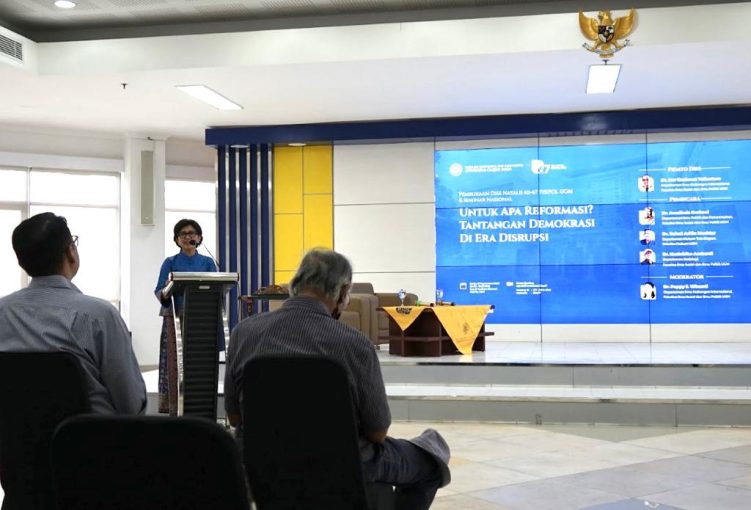
In the mid-2000-s, various index and watchdogs of democracy showed that Indonesia had practiced democracy well. However, Nur Rachmat said, in these last few years, the doubt surrounding the claim that Indonesia is a democratic country continues to rise as states and society are finding it hard to deal with the challenges of contemporary democracy. As a consequence, practices that weaken democracy start to show.
“In these last few years, we see how the use of digital space continues to weaken democracy, how the management of the pandemic is used as an opportunity to weaken civil society, and how society’s plea for environmental protection is disregarded,” he said.
In the middle of the discussion about what kind of democracy we need, Nur Rachmat explained that what we really need most is to be a democracy that continues to learn. Digital transformation, the pandemic, and the climate crisis are contemporary challenges that states and society face that urge us to become a democracy that learns. Those three challenges make us realize that flexibility in navigating democracy is needed to face problems that seem apolitical when in reality they are closely tied to the dynamics of power.
UGM’s Rector, Ova Emilia, also attended the event. She said that the current condition of democracy is a turning point for political situations that are no longer seen as relevant.
“Reformasi can be seen as a chance to make ourselves better, to adjust the things that are no longer in line with the status quo. I see reformation as a dynamic that will continue to develop. The success of this dynamic rests on how well we capture and manage the fluctuating needs of our civilization,” Ova said.
Furthermore, the Dean of Fisipol UGM, Wawan Mas’uid said that this is a good opportunity for us to reflect on the role of our faculty in the face of the domestic and global dynamics of democracy. He said that we can do small actions that might be local in scope but have a stronger global value.
“For example, the Dies Natalis team will lead a planting of a thousand trees as a part of our small action. Fisipol UGM will collaborate with UGM’s Faculty of Forestry to contribute in fighting climate change. This also goes to show that democracy can only survive with the involvement of individuals and communities,” Wawan said.
After several speeches and welcoming remarks, the next event is the National Seminar which invited speakers such as Amalinda Savirani (Lecturer in the Department of Politics & Governance), Zainal Arifin Mochtar (Lecturer in the Department of Constitutional Law), and Kuskridho Ambardi (Lecturer in the Sociology Department).
